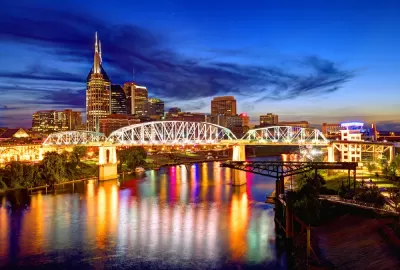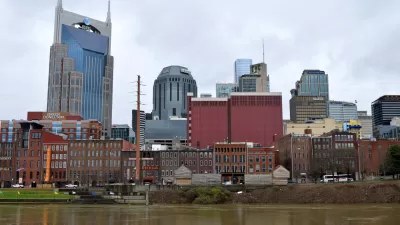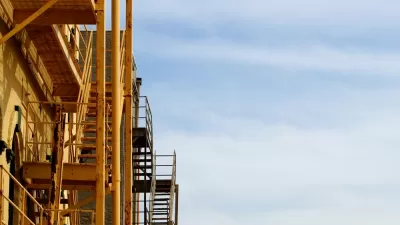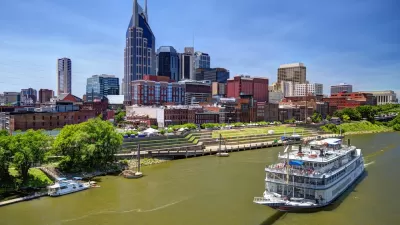A new series of articles, launched by a big feature earlier this month, will explore the changes occurring in the famous and beloved city of Nashville.

"Nashville is growing and changing fast, and the nation has taken notice," writes David Plazas in a large, photo supplemented feature for The Tennessean.
Plazas endeavors to describe the flip side of the city's rapid growth, summarized thusly: "for people who can no longer afford to live in Nashville because of the hot real estate market, the 'it city' dream is elusive."
Data backs the narrative described from multiple angles in the article:
The census reported that from 2011 to 2015, the average home price in the Nashville area was $167,500. That jumped to $266,408 in December 2016, according to monthly data tracked by the Greater Nashville Realtors.
Real Estate website Zillow even named Nashville the hottest real estate market in 2017.
Meanwhile African-American neighborhoods near downtown undergoing a wave of displacement and "[a]ffordable housing for lower-income families is now in the suburbs, in places such as Antioch, Bellevue and Madison," writes Plazas. "In some cases, that is causing a concentration of poverty in outlying areas of the city."
Rev. Bill Barnes, whose name is also found on city's affordable housing trust fund, is quoted in the article describing the "suburbanization of poverty" and the "homogenization" of neighborhoods, "where poorer children have inequitable access to quality schools, transportation and opportunities."
Plazas also discussed the affordable housing agenda laid out in the 2015 NashvilleNext comprehensive plan. For more on the community engagement process that led to the approval of that plan, read a Planetizen feature from August 2014.
The feature article by Plazas is the first in a monthly series on "growth, housing, displacement and the future of Nashville’s neighborhoods."
FULL STORY: The costs of growth and change in Nashville

Maui's Vacation Rental Debate Turns Ugly
Verbal attacks, misinformation campaigns and fistfights plague a high-stakes debate to convert thousands of vacation rentals into long-term housing.

Planetizen Federal Action Tracker
A weekly monitor of how Trump’s orders and actions are impacting planners and planning in America.

San Francisco Suspends Traffic Calming Amidst Record Deaths
Citing “a challenging fiscal landscape,” the city will cease the program on the heels of 42 traffic deaths, including 24 pedestrians.

Defunct Pittsburgh Power Plant to Become Residential Tower
A decommissioned steam heat plant will be redeveloped into almost 100 affordable housing units.

Trump Prompts Restructuring of Transportation Research Board in “Unprecedented Overreach”
The TRB has eliminated more than half of its committees including those focused on climate, equity, and cities.

Amtrak Rolls Out New Orleans to Alabama “Mardi Gras” Train
The new service will operate morning and evening departures between Mobile and New Orleans.
Urban Design for Planners 1: Software Tools
This six-course series explores essential urban design concepts using open source software and equips planners with the tools they need to participate fully in the urban design process.
Planning for Universal Design
Learn the tools for implementing Universal Design in planning regulations.
Heyer Gruel & Associates PA
JM Goldson LLC
Custer County Colorado
City of Camden Redevelopment Agency
City of Astoria
Transportation Research & Education Center (TREC) at Portland State University
Jefferson Parish Government
Camden Redevelopment Agency
City of Claremont





























